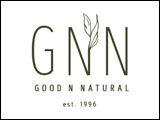A plant breeder with the University of Saskatchewan is hoping the release of a new hulless barley as a public variety will persuade seed growers to multiply the seed.
To encourage pedigreed seed growers to produce sufficient seed supplies to meet local demand, the Crop Development Centre in Saskatoon has released its new CDC Lophy-I, a low phytate hulless barley, as a public variety.
The new variety contains low levels of phytate, a form of phosphorus that is not particularly available to hogs, which means less need for swine producers to add phosphorus to the diet and less phosphorus in the manure.
Oat and barley breeder Dr. Brian Rossnagel hopes eliminating royalties on the variety will provide an incentive for seed growers to multiply the seed.
The release as a public variety means that seed growers out there can purchase a small amount of breeders seed from us here at the Crop Development Centre, then they can take the variety, reproduce the seed through the various generations of pedigreed seed and sell certified seed free of royalties at what ever price they can get for it and so on to whom ever is interested in purchasing it to grow it as feed particularly for swine.
The flip around on that then is that our seed growers out there, there are a few who have some seed of this variety already and others may be interested, they need to hear a message from the hog producers that they’re interested in purchasing this material because, of course, if there’s not market, there’s no point in growing the seed.
We’ve got four growers who have had the variety for a couple of years.
Unfortunately due to some issues in the industry and also the fact that the hog industry has not been in the greatest shape for the last little bit, we didn’t see a lot of seed increase last year but we’re hoping that this year, with this now being released as a public variety that the seed growers will pick up on that and move forward.
There ought to be some seed in place that could be released as certified seed in 2011.
Dr. Rossnagel expects this new variety to be of particular interest in Manitoba, where new environmental legislation has imposed strict limits on the application of phosphorus in manure.
Source: Farmscape.Ca



